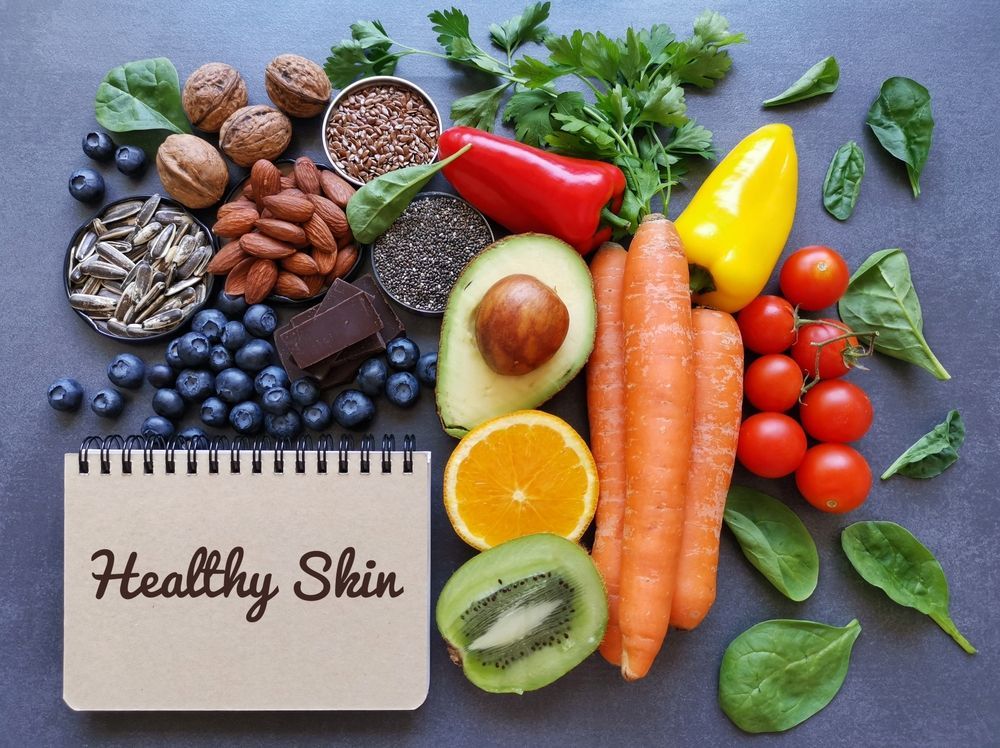Hydration Tips for Healthy, Glowing Skin: Expert Advice

Hydration is essential for maintaining healthy, glowing skin. In this article, we explore expert tips and advice on how to keep your skin adequately hydrated. Discover the importance of water, daily habits, and the right products, as well as potential mistakes to avoid for optimal skin health.
Understanding the Importance of Hydration for Skin Health
Hydration plays a pivotal role in the overall health and appearance of your skin. When your body is adequately hydrated, your skin reflects that internal moisture, resulting in a radiant glow. Proper hydration helps maintain skin elasticity and combat signs of aging.
Skin is the body's largest organ, and it requires adequate moisture to function optimally. When you're well-hydrated, your skin acts as a barrier that protects against environmental pollutants and toxins. Hydration also allows your skin to effectively regulate oil production, keeping it balanced and preventing issues like acne or excessive dryness.
The Role of Water in Skin Function
Water is a crucial component for skin function. It helps transport nutrients and toxins, supports cellular turnover, and provides a plump appearance to your skin cells. The moisture content in your skin directly correlates to its overall health and resilience.
When you consume an adequate amount of water daily, it helps maintain the skin's natural moisture barrier. This barrier is necessary to keep skin hydrated, preventing excessive moisture loss and dryness. It also assists in the healing of wounds and scarring.
How Dehydration Affects Your Skin
Dehydration can have a multitude of negative effects on your skin. When your body lacks water, your skin may become dull, flaky, and prone to irritation. You may also notice an increase in fine lines and wrinkles as your skin loses elasticity.
Additionally, dehydration can lead to an oily complexion. In an effort to compensate for dryness, your skin may overproduce oil, resulting in clogged pores and breakouts. Understanding the signs of dehydration in your skin is crucial for maintaining its health and vibrancy.
Daily Hydration Habits for Better Skin
Incorporating daily hydration habits into your lifestyle can significantly improve your skin's health. Here are some practical ways to ensure you and your skin receive adequate hydration:
Drinking Enough Water
The most straightforward way to stay hydrated is by drinking enough water throughout the day. Experts recommend aiming for at least eight 8-ounce glasses, but individual needs may vary based on activity levels and climate.
Consider carrying a reusable water bottle to encourage regular sips throughout your day. If plain water feels tedious, try infusing it with fruits or herbs for added flavor and nutrients.
Hydrating Foods to Include in Your Diet
Your diet also plays a vital role in your skin's hydration. Many fruits and vegetables have high water content, which can help support your hydration goals. Some excellent options include:
- Watermelon
- Cucumbers
- Oranges
- Strawberries
- Spinach
Incorporating these hydrating foods can be a delicious and nutritious way to maintain skin moisture. Combining hydration with a balanced diet rich in antioxidants, vitamins, and healthy fats will yield the best results for your skin.
Topical Hydration: Choosing the Right Products
While drinking enough water and eating hydrating foods are critical, using the right topical products is equally essential for achieving hydrated skin. Selecting the right skincare products can make a noticeable difference in your skin's appearance.
Understanding Ingredients for Skin Hydration
When exploring products for skin hydration, it's essential to understand which ingredients to look for. Some key hydrating ingredients include:
- Hyaluronic Acid
- Glycerin
- Urea
- Shea Butter
- Aloe Vera
These ingredients can help retain moisture and provide a soothing effect on the skin. Always check labels for these components to ensure you're choosing products that will effectively hydrate your skin.
The Benefits of Serums, Creams, and Lotions
Serums, creams, and lotions are formulated with specific concentrations of hydrating ingredients. Serums tend to have a lighter consistency and deliver a potent dose of hydration. Creams are typically thicker, providing a robust moisture barrier, while lotions offer a balanced approach.
Choosing the right texture for your skin type is essential. Oily skin may benefit from a lightweight serum, while dry skin types often perform better with a cream or a layered approach combining both. Being mindful of these options will enhance your hydration routine.
Expert Tips on Hydrating Your Skin
Beyond drinking water and choosing the right products, experts have invaluable tips for enhancing your skin's hydration. Consider these practical insights:
Understanding your specific skin type is key to effective hydration. For example:
- Dry skin may require richer creams and frequent application.
- Oily skin often benefits from oil-free products that provide hydration without clogging pores.
- Combination skin might necessitate a targeted approach, using different products for different areas.
Always pay attention to how your skin responds to various products and adjust your routine accordingly.
Seasonal Hydration Advice
Seasons greatly impact skin hydration. During colder months, low humidity can lead to increased moisture loss, necessitating thicker creams and more intensive hydration routines. Conversely, summer may call for lighter formulations, as heat can lead to excess oil production.
Be proactive about adjusting your skincare routine with the changing seasons to maintain a constant level of hydration throughout the year.
Common Hydration Mistakes to Avoid
Even with good intentions, many people make mistakes in their hydration routines. Avoiding these pitfalls can boost your hydration efforts significantly.
Over-Hydrating Your Skin: The Risks
While staying hydrated is essential, over-hydrating can lead to problems such as irritation or breakouts. Striking a balance is crucial. Overuse of hydrating products can overwhelm your skin, especially if improperly applied.
Always introduce new products slowly, observing how your skin reacts before adding more to your routine.
Misconceptions about Drinking Water and Skin Health
A common myth is that drinking excessive water alone will drastically improve your skin's health. While hydration is important, factors like genetics, diet, and skincare practices all influence your skin's appearance as well.
Understanding that hydration is a piece of a larger puzzle will help in creating a comprehensive skincare routine that ensures healthy, glowing skin.
By recognizing the importance of hydration and implementing these tips, you're well on your way to achieving the vibrant, healthy skin you've always desired.





